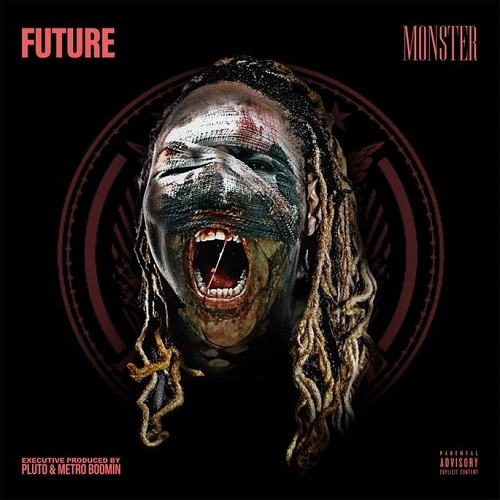Those who still have doubts about why modern mixtapes are so great, or who wonder about why rappers give for free what, at the end of the day, are real albums, should consider Future's career. Twice, he's been the herald of a new evolution of Atlanta's trap music, based on his Auto-Tuned raps and his vulnerable lyrics, practices at the very core of the 2010's. By 2011, True Story and Streetz Calling had paved the way to Pluto, his first album. And after his second opus, Honest, hadn't met expectations, the rapper went back to the mixtape format, with a series of releases respectively titled Monster, Beast Mode and 56 Nights. Altogether, these had restored the critics' faith in Future, and helped DS2, his third album, collecting rave reviews.

With decisive help from Metro Boomin' and other Atlantan producers like Southside and TM-88, Monster, the first of the series, might be the most remarkable. The title, the cover art, and the release date – Halloween – indicated that Future was to disclose his most tenebrous face on this mixtape. There, he was at his rawest, using some mantra - "all this shit radical", on "Radical" - to pretend that he was, indeed, a radical, or bragging about his spontaneous approach to his lyrics ("Fuck up Some Commas"). By the end, on "Codeine Crazy", he claimed he recorded his music as if it was a demo. And that was exactly what made him successful.
The rapper, also, did what he was famous for: he talked about his pains. That was the case with the heartbreaking "Throw Away", a track about the sore end of his relationship with Ciara. Obviously, this was still an open wound, which the rapper exposed crudely. His voice was full of ache, his throat hurt, his loss overwhelmed him, when he claimed his persisting love for his former partner. That being said, Future was not exactly a romantic or a sentimentalist: he had absolutely no regret for his infidelity. In an overly sexist way, he wondered why his adultery with a woman he had no passion for, could have damaged his relationship with Ciara.
This was still trap music. Future enlarged its scope, true, but some of its key components were still there. We had some braggadocio, like with an opening track stating why the rapper was so crucial to his time, and with "After That", the only song with a guest, Lil Wayne. We had the (dead or alive) homie anthems ("My Savages", the sublime "Hardly"), and some unapologetic misogyny ("Monster"). And of course, there was a great deal of drugs, in his lyrics, like with the concluding and eerie "Codeine Crazy", as well as with the erratic and stoned way he delivered his haunted raps. Monster was, more or less, a new manifesto for a rapper who, with the subsequent releases, would be well positioned to become the most significant of the 2010's.
